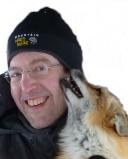Animal Behavior
How COVID Influenced Animal Behavior
Effects of the "anthropause."
Posted November 27, 2023 Reviewed by Devon Frye
Key points
- One effect of COVID isolation was a dramatic decrease in contact between humans and wildlife.
- This dramatic decrease in contact between humans and wildlife has been dubbed the “anthropause.”
- Hints are emerging as to how the anthropause affected animal behavior.
During the height of the COVID pandemic, headline stories were peppered with photos of deserted streets from the world’s largest metropolises. Universities quickly began to resemble ghost towns, as professors scrambled to put every course possible online to help minimize face-to-face interactions and transmission of disease. One effect of this worldwide behavioral isolation was a dramatic decrease in contact between humans and wildlife, in what has been dubbed the “anthropause.”
Hints are beginning to emerge as to how the anthropause affected various types of animal behavior. For example, Marlene Waters and her colleagues studied territoriality in a population of dark-eyed juncos (Junco hyemalis) living on the campus of the University of California, Los Angeles (UCLA). During 2020 and 2021, UCLA placed a temporary halt on in-person classes, significantly reducing interactions between juncos and humans. Waters and her team looked at whether this affected territorial aggression in the birds.
Did the reduction in noise and frequency of human disturbances increase the probability that territorial owners perceived intrusions from their neighbors, resulting in an increase in aggressive territorial conflicts? Or perhaps the anthropause resulted in decreased territoriality? Or was there no change at all?
In both 2019 and again in 2021, Waters and her team simulated territorial intrusion by placing a 3-D printed and painted male junco on top of a speaker placed near a male junco’s territory. The speaker then broadcast the songs of an intruder male junco for 15 minutes. The researchers noted how close the territory owner came to the speaker, the number of flyovers that male made, the number of vocalizations, and the latency to initiate vocalizations. Waters and her colleagues also measured the latency of the territory owner to enter a three-meter radius of the simulated intrusion.
What they found was that during the anthropause, territorial males took longer to start singing (a territorial response to intruders), took more time to approach the simulated intruder, and did not approach as closely as they did in pre-pandemic times. Walters and her team hypothesize that during the lockdown, foraging and nesting sites that juncos had avoided because they were associated with very high levels of interactions with humans suddenly became available, and this may have reduced the pressure to respond to territorial aggression.
As we continue to slowly recover from the devasting effects of COVID on every aspect of human life (and death), we will no doubt uncover other complex ways that this modern-day plague has impacted animal behavior, both via the anthropause and otherwise.
References
Walters, M., Diamant E., Wong, F., Cen, C. and P. J. Yeh (2023). Behavioural plasticity and the anthropause: an urban bird becomes less aggressive. Animal Behaviour 200: 71-80.


